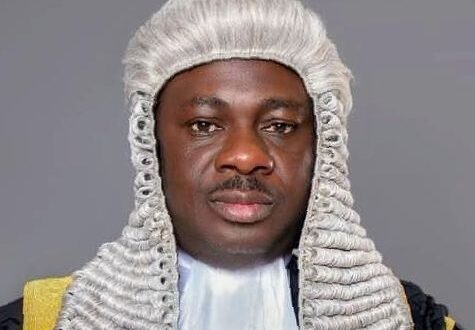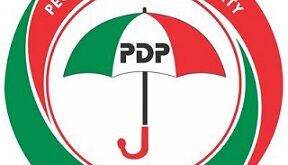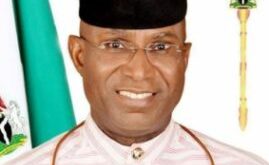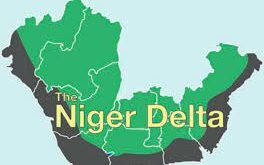By Ehichioya Ezomon
A disturbing sad chapter was closed on Thursday, June 14, 2024, in the Delta State House of Assembly, when the “suspension” of a member, Matthew Omonade, representing Ughelli North I State Constituency, was lifted following a couple of apologies reportedly extracted from him.
Omonade, a Lawyer and Chairman of the House Committee on Public Petitions, was suspended on May 14, 2024, for 14 days – but was recalled on June 14 after one month – for asking that his contribution, as the author of a supposed Executive Bill, be recognised and acknowledged.
However, Omonade’s request was viewed as a direct affront to the Speaker, Rt Hon. Emomotimi Guwor, the entire House, and by extension, Governor Sheriff Oborevwori, who, via the Speaker’s seeming subterfuge, was inadvertently and unnecessarily drawn into a matter that could’ve been “cut with a finger nail” (literally, ‘settled easily’), according to a saying by Esan people of Edo Central of Edo State, Nigeria.
Let’s get the lead-up to the story. The National Assembly (NASS) passed an Electricity Act in July 2022 under the administration of former President Muhammadu Buhari. In June 2023, President Bola Tinubu assented to the Electricity Act 2023, which authorises states, companies, and individuals to generate, transmit and distribute electricity.
The new electricity law repeals the Electric Power Sector Reform Act (EPSRA), signed by President Olusegun Obasanjo in 2005, which provided the legal, regulatory and governance frameworks guiding the Nigerian Electricity Supply Industry (NESI).
As reported by Premium Times on May 17, 2024, with the new law, states would issue licenses to private investors, to operate mini-grids and power plants, but such licenses are not to extend to inter-state or transnational distribution of electricity. Accordingly, state governments began the process of domesticating the Electricity Act 2023, to regulate the sector in their jurisdictions.
Enugu, Ekiti and Ondo states have established the Enugu State Electricity Regulatory Commission (EERC), Ekiti State Electricity Regulatory Bureau (EERB) and the Ondo State Electricity Regulatory Bureau (OSERB), respectively. In April 2024, the Nigerian Electricity Regulatory Commission (NERC) directed the transfer of regulatory oversight of NERC’s to the electricity markets in Enugu, Ekiti and Ondo states.
Delta State didn’t have an electricity regulatory body, prompting lawmaker Omonade to produce a draft copy for a Bill to Generate, Transmit, and Distribute Electricity in Delta State, co-opted 16 lawmakers to co-sponsor the bill, and gave a copy to Speaker Guwor in advance of presenting it to the House.
Going by reports by The Townhall.com, which followed up on the story from start to finish, “the bone of contention centred on the issue of a Bill on Generation and Distribution of Electricity to be domesticated in Delta State.”
“It was learnt that Omonade actually carried out extensive research on the Bill, and after working on it, he passed a copy to Mr Speaker, who subsequently forwarded same to the Governor.
“And when he (Omonade) kept on asking the Speaker for access to table it, he was denied only for the bill to return to the House as an Executive Bill, without crediting Omonade with regard to his intellectual property, thus amounting to alleged plagiarism.
“His suspension came as a punishment for daring to ‘harass’ Mr. Speaker, by pestering him to allow him present the bill, which originally was his brain child.”
Without the Speaker giving effect to the bill, with different excuses for the “delay” whenever Omonade asked for the update, the bill – with its inherent mistakes as a draft copy – was suddenly introduced at plenary as emanating from the executive arm of government.
A disappointed Omonade asked that he be recognised as the author, or the bill be withdrawn entirely. Pronto, the House suspended him for 14 days, his rights and privileges withdrawn as a lawmaker of the assembly, and a five-member Ad-hoc Committee empanelled to investigate his alleged gross misconduct, with the committee report returning a verdict of “guilty as charged.”
Did Omonade commit misconduct to warrant sanctioning by the House? Certainly not! He wasn’t asking for too much, just to be allowed to table the bill, or in the worst case scenario, recognise and acknowledge him as the author of the document.
Still, Omonade failed to exercise caution and discretion, particularly when his draft Bill had grown execitive wings! In Nigeria, Deputy Governors and Speakers of State Assemblies “don’t scratch their teeth with the Executive,” talkless of floor members of the legislature in the mould of Omonade.
Nonetheless, priding himself as a “Man of the People and Father to all Deltans” without discrimination – as he’s accordingly demonstrated publicly – Governor Oborevwori ought to invite Omonade, and talk things over with him, to have a middle ground on the bill.
Two benefits from such a meeting: The Governor would seek Omonade’s “permission” to adopt the material as an Executive Bill, and for the lawmaker – if the rules of the House of Assembly so allow – to present the bill at the plenary.
That way, Omonade would feel recognised, and honoured by the Governor asking him to present an Executive Bill to the House – a rare privilege any legislator would jump at. With that personal contact and interaction, the Governor would gain, and recruit a fiercely loyal member in the House.
Instead, the House – perceptively seen by the public to be influenced by the Governor – resorted to intimidation, threats and punishment for Omonade’s “effrontry” to request that his right over the draft Bill be guaranteed.
If anyone’s at fault – and should be censored – it’s the assembly Speaker Guwor, who betrayed the confidence Omonade reposed in him, by presenting to him a copy of the draft Bill ahead of laying it before the House.
Had the Speaker employed tact rather than legislative brawn, he would’ve discussed with Omonade his intention to turn the draft over to the government for an Executive Bill, and Omonade wouldn’t resist the buy-in so long as there’s protection for his authorship.
The Speaker, who’s only the “primus inter pares” (‘first among equals’) in the House, perhaps wanted to ingratiate the Governor by hijacking the intellectual property of a fellow lawmaker, and secretly sent it to the Governor, who, perhaps, the Speaker didn’t tell the whole truth. Who knows, he could claim to generate the copy, for the government to adopt as an Executive Bill, and the Governor would appreciate his “hardwork”!
The deepest cut against Omonade was for the Speaker to parrot the ad-hoc committee that investigated his alleged gross misconduct, and classify laws as “universal, for which reason laws made by one State or country can be domesticated in another State or country to serve the interest of the citizens without anybody from any quarter crying out for plagiarism.”
Outside the “Hallowed Chamber,” Speaker Guwor – pressed by journalists at a press conference marking the first anniversary of the 8th Delta Assembly, to comment on the Omonade saga – said: “It is very, very unfortunate that a member was suspended; that is not our prayer. In life, certain things happen.
“The truth is that, there is a committee set up to investigate, and I don’t want to preempt the outcome of it. However, Laws are universal, Laws are not books. Books are plagiarised, Laws are not plagiarised.” What hogwash! Omonade’s draft Bill wasn’t a law yet at the point of contention, and thus he retained proprietary ownership over it.
Speaker Guwor unduly applied legislative powers to intimidate and punish an innocent member fighting for his right to ownership of a draft Bill laid before the House. If not for his threats – and maybe fear of repercussion from the Governor – the co-sponsors of the bill wouldn’t chicken out, and leave Omonade to carry the can.
As he’s “let off the hook,” and “his rights and privileges as a member of the 8th Delta State House of Assembly immediately restored,” Omonade’s sternly warned against “future occurrence of such actions that tend to undermine the integrity and sanctity of the office of the Governor and Speaker of the House.”
Hon. Omonade need no telling that he’ll be under “political surveillance” ahead of the next cycle of elections in 2027! As his suspension is reversed, he should “familiarise himself with the rules of the House” – as urged by the Speaker and the investigative ad-hoc committee – to enable him achieve legislative success, and serve his constituents well in line with the mandate they gave to him at the poll on March 18, 2023.
•Mr Ezomon, journalist and media consultant, writes from Lagos, Nigeria.
 PH Mundial – Port Harcourt Online Newspaper News Across The Region
PH Mundial – Port Harcourt Online Newspaper News Across The Region





